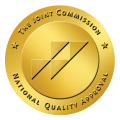Dialectical behavior therapy, or DBT, is a therapeutic approach to treating addiction that promotes living life in the present. It helps patients develop various healthy methods for managing their stress. DBT helps people find emotional balance and improve relationships with family, friends, coworkers, and classmates. A dialectical behavior therapy program can be a game changer for any individual hoping to recover fully from an addiction to drugs or alcohol. If you or someone you love is struggling with a drug or alcohol use disorder, find out how programs at Aftermath Addiction Treatment Center can support your recovery story. Contact us at 781.587.3636 today.
What Is Dialectical Behavior Therapy?
Dialectical behavioral therapy was pioneered in the 1980s to treat borderline personality disorder effectively. Since then, dialectical behavioral therapy has been proven effective in treating substance abuse in patients. It helps people heal and overcome several co-occurring issues in conjunction with their substance abuse, including:
-
- Depression
-
- PTSD
-
- Trauma
-
- Eating disorders
-
- Bulimia
-
- Suicidal ideation and other mental health conditions
Dialectical behavioral therapy attempts to treat you as a whole person. It addresses any substance abuse and why you first began and continued to use drugs or alcohol. This is one key reason dialectical behavior therapy works for those working to overcome their addiction.
The Benefits of Dialectical Behavior Therapy
Dialectical behavior therapy will involve a combination of different therapies and individual and group sessions to help instill essential life skills capable of fostering a long-term, successful recovery. During a dialectical behavior therapy program, our compassionate professionals with personal therapy and recovery experience will support you as you experience individual, one-on-one, and group therapy.
Skill building in a group environment to promote learning and foster a culture of idea sharing among others who are walking a similar path is also vital to this therapeutic puzzle. When you think about what is dialectical behavior therapy, you will soon come to understand that the group experience is critical to its methodology and, in turn, its success. When you share, listen, and are vulnerable with others on a similar addiction treatment and recovery path, you will be more inclined to stay motivated while being held accountable for your words and actions. Additionally, learning how to utilize the skills from dialectical behavior therapy immediately in everyday life can often make the lessons more concrete and actionable. This will provide positive results that may encourage you to continue walking toward recovery.
Dialectical behavior therapy works because it focuses on providing a patient with essential critical skills in four crucial areas:
Mindfulness
To be mindful is to live in a state of active, open, and present attention to life and all that you have to be thankful for every day. Practicing mindfulness will teach you to observe your thoughts and feelings without judgment and be present in your own life. Patients accomplish this through critical mindfulness exercises practiced during therapy.
Distress Tolerance
Instead of once again turning to substances like drugs and alcohol to escape your negative emotions, dialectical behavior therapy teaches distress tolerance. This will increase the tolerance of negative thoughts and feelings as you learn to cope with any harmful triggers that once lead you down a dangerous path of drug and alcohol use.
Emotion Regulation
Substance abuse may be masking mental health issues caused by intense emotions that seem unmanageable without using drugs or alcohol. During dialectical behavior therapy, you will learn different methods for managing your emotions and changing them for the better.
Interpersonal Effectiveness
Many patients suffering from addiction struggle in their relationships with family, friends, classmates, and coworkers. Learning interpersonal effectiveness through dialectical behavior therapy will arm you with the essential techniques for communicating with others in a way that will simultaneously maintain your self-respect and build stronger, healthier relationships.
Dialectical Behavior Therapy for Addiction Strategies
Dialectical behavior therapy teaches patients the skills and strategies to not only stop using drugs and alcohol but also to recognize the signs of relapse and the coping mechanisms to avoid relapse. Dialectical behavior therapy, sometimes referred to simply as DBT, focuses on altering a patient’s behavior. This is designed to make steering clear of dangerous situations and staying clean and sober possible. It is accomplished by helping patients learn how to set boundaries, improve their home, work, and social environments, and build an understanding and supportive network.
Some strategies may include:
-
- Encouraging the search for safer environments to exist
-
- Teaching the importance of supportive friends and family
-
- Helping remove harmful triggers from daily life
-
- Increasing self-esteem
-
- Boosting self-confidence
-
- Teaching coping mechanisms to manage stress
-
- Providing access to a supportive alum network
Learn About DBT at Addiction Aftermath Treatment Center
Drugs and alcohol cause more damage than just to your physical body. An addiction treatment program using dialectical behavior therapy can help you understand how to regain control over your life, relationships, and emotions. Contact Addiction Aftermath Treatment Center at 781.587.3636 today to learn more about how dialectical behavior therapy can be vital to your recovery.




